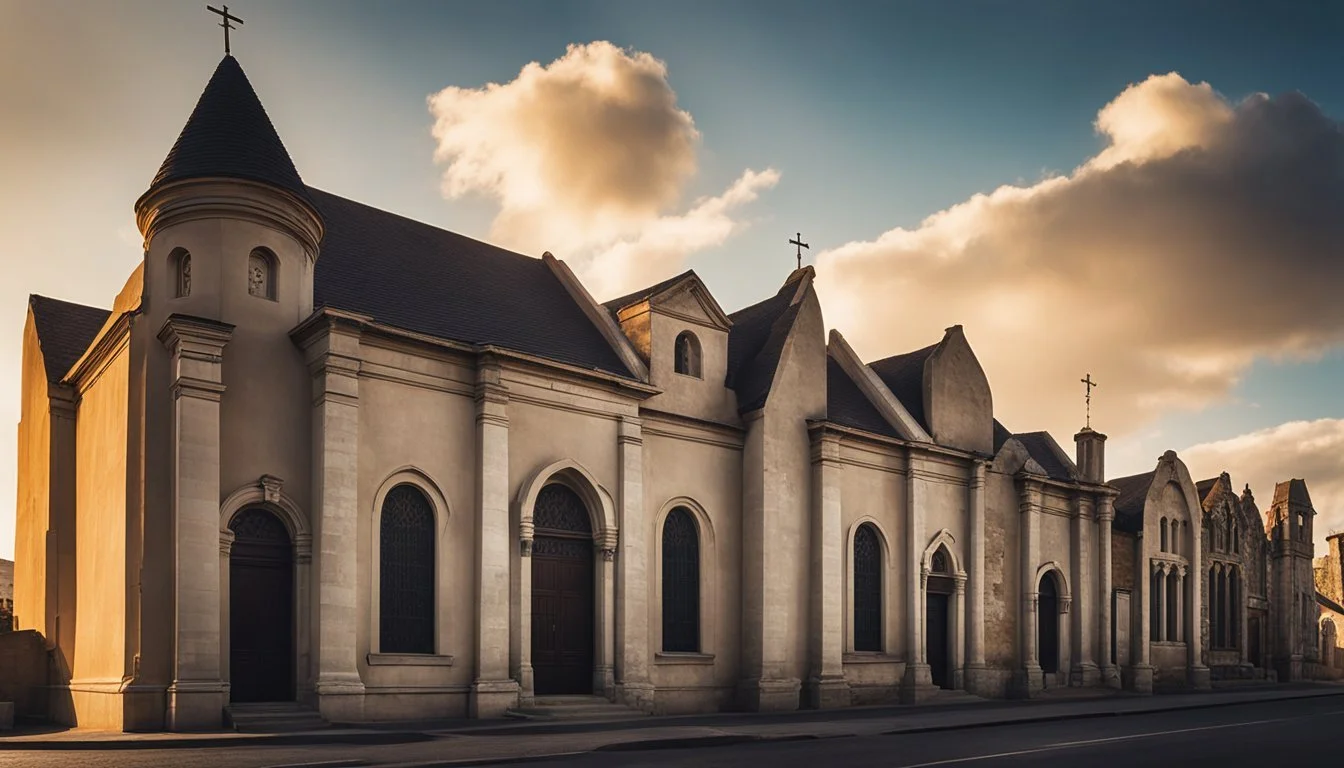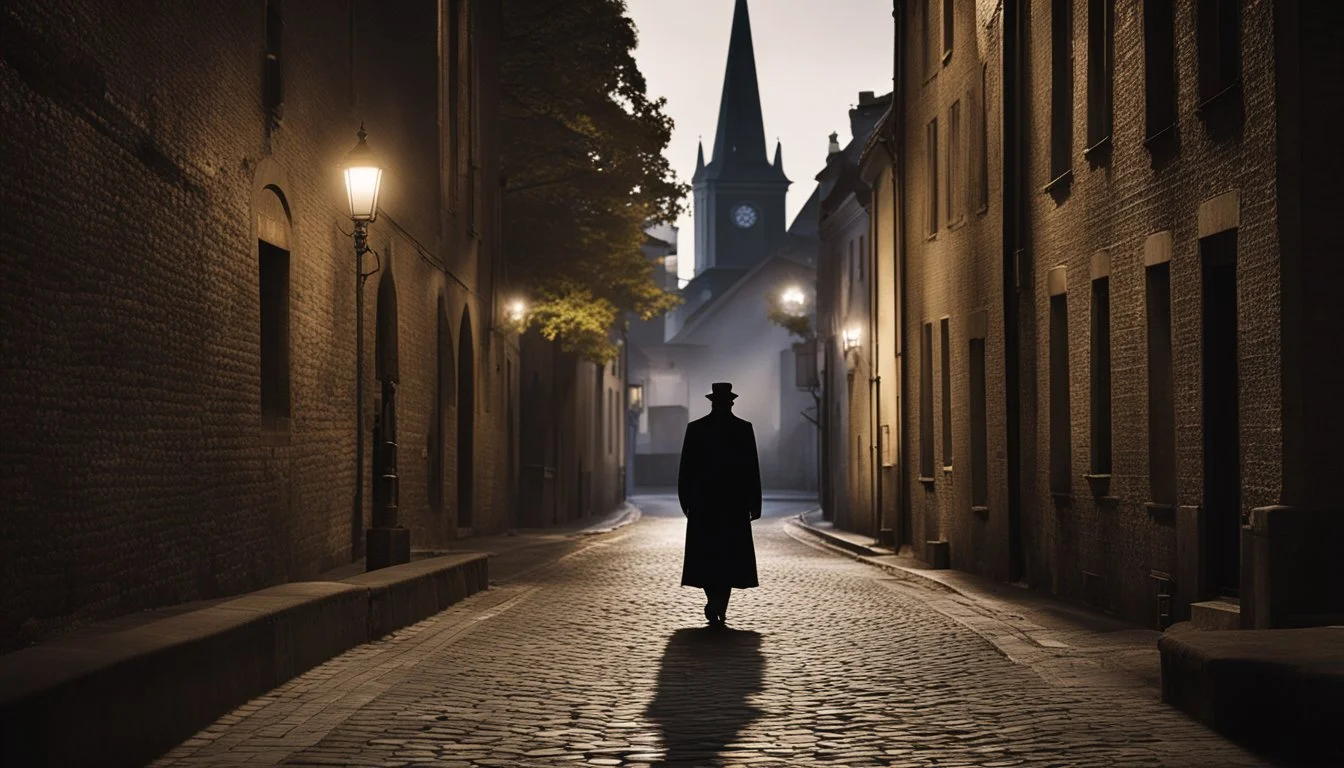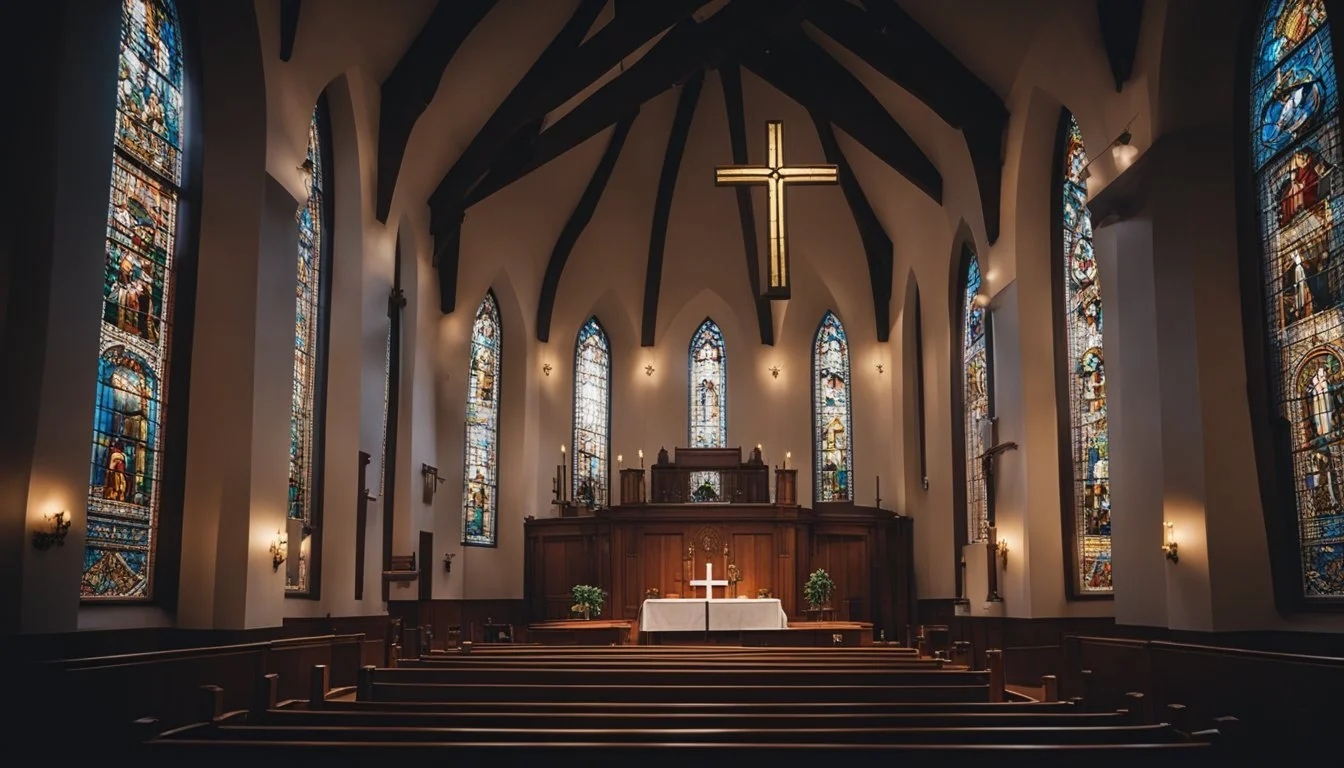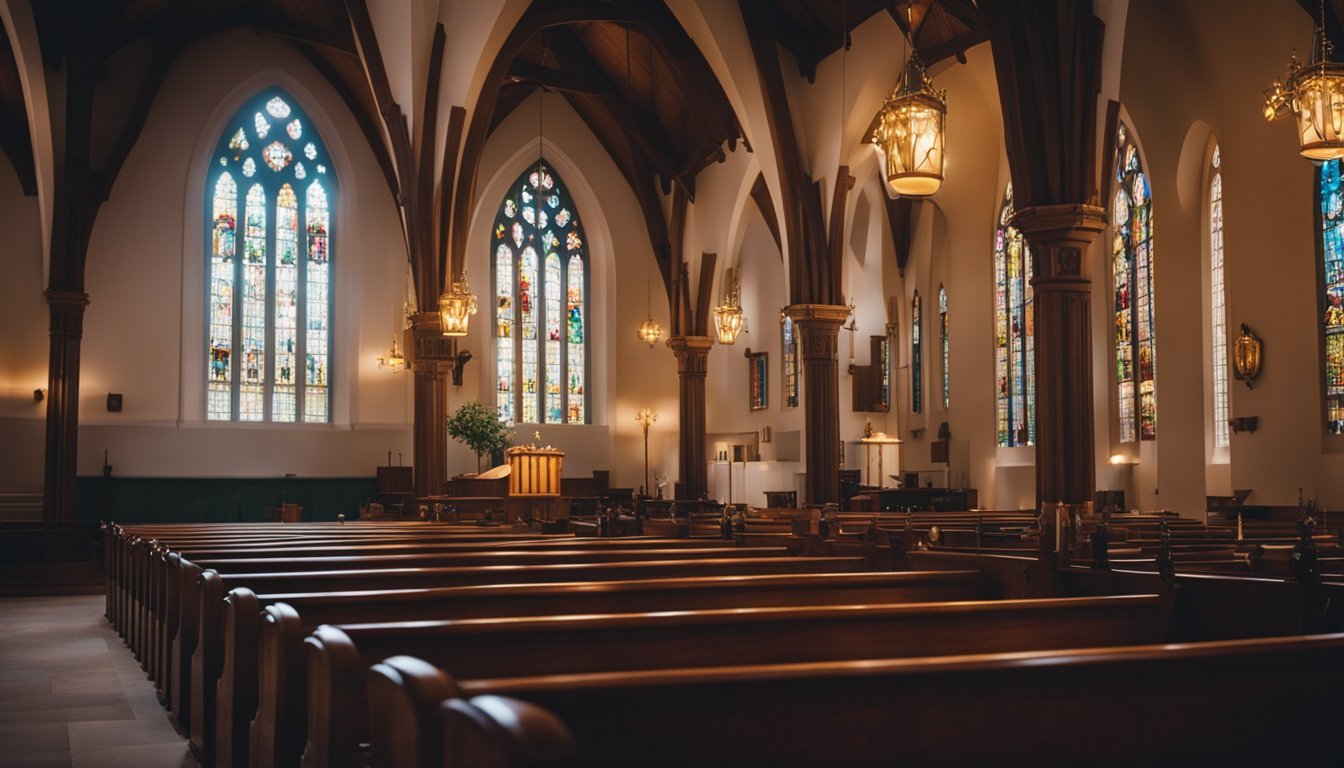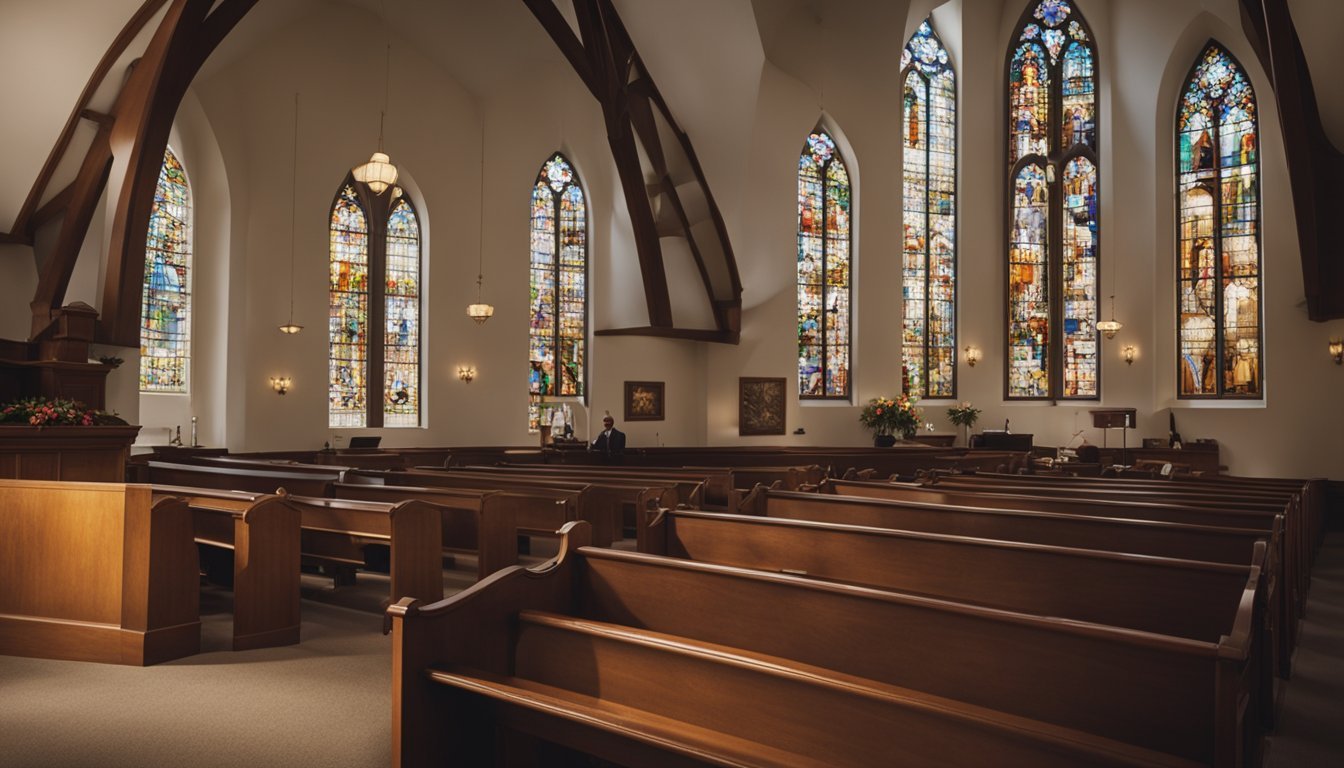7 True Crime Documentaries About Reformed Churches
Stories of Faith and Betrayal
True crime documentaries have garnered immense popularity, shedding light on the darker facets of human behavior and societal institutions. Among these, stories about reformed churches stand out, revealing the complexities and sometimes sinister aspects of religious movements that have attempted to change or adapt their doctrines and practices.
What compels viewers most is the exploration of how these reformed churches impact their congregants' lives. These documentaries not only chronicle crimes but also delve into the psychological and cultural influences that shape these communities. Viewers gain a multifaceted understanding of why certain individuals or groups choose to deviate from conventional religious practices.
1) Holy Hell on Hennepin Avenue (2016)
"Holy Hell" is a documentary that delves into the 22-year journey of filmmaker Will Allen with the Buddhafield cult.
The documentary reveals the hidden world inside a spiritual sect led by a charismatic leader known as Michel. Living as a member and videographer, Allen captured the internal workings and eventual abuses within the group.
The film intricately chronicles the rise of the community and the eventual unraveling due to revelations of misconduct by its leader.
Allen's footage provides an intimate look at the daily lives and personal impacts on the members, revealing the complexities and dangers of such spiritual communities.
For more information, you can visit the Wikipedia page.
2) Salvation's Dark Shadow
"Salvation's Dark Shadow" (2023) explores the hidden world of the Shekinah Church, led by Pastor Shinn. The documentary uncovers financial exploitation within the church, with members coerced into giving up their earnings for dubious management and religious services.
Ex-members provide harrowing testimonies of psychological and sexual abuse.
This documentary lays bare the manipulative tactics employed by cult-like leadership, showing how faith can be twisted into a tool for control and exploitation. The film presents a sobering look at how vulnerable individuals can fall victim to those they once trusted deeply.
For more information on "Salvation's Dark Shadow," please visit IMDb.
3) The Pious Predicament
"The Pious Predicament" sheds light on troubling activities within certain reformed churches. This documentary dives into cases where leaders exploited their positions, leading to severe consequences for their congregations.
A notable example discussed is the case of Richard Huckle, a predator within the Christian Church. Huckle used his guise as a devout Christian to commit heinous crimes, eventually facing conviction.
Another highlighted case is the documentary "Keep Sweet: Pray and Obey" (2022). This series investigates the extensive crimes committed by a polygamist pastor in a reformed evangelical Christian community in Utah.
These documentaries offer a sobering look at how places meant for spiritual refuge can become arenas of control and abuse. Each film provides a deeper look into the red flags and warning signs of such manipulative behavior within religious institutions.
More on Richard Huckle
More on Keep Sweet: Pray and Obey
4) Faith and Fraud: Exposing the Truth
This documentary dives into controversial practices within certain reformed churches, revealing the fraudulent activities of some ministries. It brings to light exploitations of faith for financial gain, shedding a spotlight on deceptive schemes designed to swindle believers.
The narrative focuses on case studies of prominent church figures who have been accused of manipulating congregants through false promises and misleading teachings.
Through interviews and undercover investigations, the film dissects how these religious leaders gain trust, exploit weaknesses, and amass wealth. Detailed accounts from former church members and insiders provide an eye-opening perspective on the extent of these fraudulent activities.
Faith and Fraud: Exposing the Truth (2024) builds a compelling case against these deceptive practices, urging viewers to scrutinize questionable ministries more critically. More Information
5) Broken Vows: Redemption Stories
"Broken Vows: Redemption Stories" (2020) is a captivating documentary that takes viewers deep into the lives of women who have navigated the challenging process of separation.
Directed by Sunnie McFadden-Curtis, the film was produced over four years and brings forward personal stories that illustrate obstacles and triumphs.
The documentary focuses on women who found themselves in the crossfire of challenging separations and follows their journey to rebuilding their lives.
The director initially started the project as a team of one, gradually forming a dedicated group of creatives to bring these powerful stories to light.
Each narrative provides insight into the emotional and logistical struggles these women faced, highlighting their resilience and growth.
"Broken Vows: Redemption Stories" aims to offer hope and guidance to others experiencing similar challenges by showcasing the strength and determination of its subjects.
For more details on the documentary, visit IMDb.
6) A Devout Deception
"A Devout Deception" dives into the complexities within certain Reformed Churches, spotlighting controversial practices and hidden truths.
The documentary unfolds like a meticulous investigation, revealing how religious fervor can sometimes mask deeper issues. Through interviews and archival footage, viewers see the dichotomy between devout piety and the deceptive actions of some church leaders.
This film delves into real-life cases where church officials have been accused of misconduct. From financial fraud to moral failings, the documentary sheds light on how these issues were often concealed to protect the church's reputation.
The narrative lays bare the struggles of whistleblowers who fought to bring these wrongdoings to light. It portrays their courage and the backlash they faced.
With expert commentary, the film provides a historical context to the events, linking them to broader trends within Reformed Churches. This perspective helps viewers understand how such deceptions could occur in institutions dedicated to moral integrity.
A Devout Deception doesn't merely sensationalize its subject matter. Instead, it aims to foster a deeper understanding of the challenges faced by religious institutions and the importance of accountability.
More information can be found on IMDb.
7) Saints or Sinners?
Murder Among the Mormons (2021) explores the story of forger Mark Hofmann's deadly schemes within the LDS Church. His counterfeit documents, particularly the white salamander letter, almost altered church history and undermined its leadership. The series delves deep into the moral complexities of faith and deception. More Information
Keep Sweet: Pray and Obey (2022) uncovers the dark secrets of the Fundamentalist Church of Jesus Christ of Latter-Day Saints (FLDS). Led by Warren Jeffs, the docuseries covers the disturbing practices and extreme obedience demanded from the church's followers. It vividly portrays the blurred lines between piety and manipulation. More Information
Sins of Our Mother (2022) presents another chilling aspect of LDS-related true crime. The Netflix docuseries focuses on the story of a mother whose extreme beliefs lead to shocking actions. This gripping tale questions the boundaries of faith-driven conduct. More Information
From Sinners to Saints (2013) offers a different perspective by showing that no one is too far gone for redemption. This exploration stresses transformation and the possibility of divine forgiveness, contrasting with the darker themes often found in true crime narratives. More Information
Each documentary presents unique stories within reformed religious communities, shedding light on the complex interplay of belief, morality, and human actions.
History of Reformed Churches
Reformed Churches have a rich history dating back to the 16th century. Their development involves significant theological shifts and notable figures who shaped their evolution.
Origins and Development
The Reformed tradition began during the Protestant Reformation in the early 16th century. Influential theologians such as John Calvin and Huldrych Zwingli played vital roles.
The movement spread across Europe, particularly in Switzerland, France, and the Netherlands. Calvin’s Geneva became a central hub, where he implemented reforms that influenced many.
Reformed Churches sought to return to what they saw as the pure teachings of scripture, rejecting practices like indulgences and the absolute authority of the pope. Their emphasis on scripture and congregational governance set them apart from Catholicism and other Protestant movements.
Key Theological Differences
Reformed Churches hold distinct theological positions. Key among these is the doctrine of predestination, which posits that God has chosen who will be saved.
They also emphasize sola scriptura (scripture alone) as the primary guide for faith and practice. The sacraments are fewer, typically limited to baptism and the Lord’s Supper.
Another notable belief is the sovereignty of God in all aspects of life. This leads to a structured, disciplined approach to worship and church governance that contrasts with other traditions.
Notable Historical Figures
John Calvin, born in France, became a leading Reformer whose works, including the "Institutes of the Christian Religion," profoundly influenced Reformed theology.
Huldrych Zwingli, operating in Zurich, pioneered many reforms and held views that were foundational for the Reformed tradition. Another significant figure is Theodore Beza, Calvin's successor in Geneva.
John Knox brought Reformed ideas to Scotland, leading to the establishment of the Presbyterian Church. These figures, among others, were instrumental in shaping the doctrines and practices of Reformed Churches, leaving a lasting legacy on Christianity.
Typical Beliefs and Practices
Reformed churches possess distinct core doctrines, worship practices, and community life that define their unique approach to faith and religion.
Core Doctrines
Reformed churches emphasize the sovereignty of God and the authority of Scripture. They adhere to the Five Solas of the Reformation: Sola Scriptura (Scripture alone), Sola Fide (faith alone), Sola Gratia (grace alone), Solus Christus (Christ alone), and Soli Deo Gloria (to the glory of God alone).
Predestination is a key belief, asserting that God has chosen who will be saved. The doctrine of covenant theology is also important, emphasizing the relationship between God and His people through covenants. Reformed theology typically follows the confessions and catechisms like the Westminster Confession of Faith and the Heidelberg Catechism.
Worship Practices
Worship in Reformed churches is characterized by simplicity and a focus on the preaching of the Word. Services frequently include prayers, hymns or psalms, and a sermon that expounds on biblical texts. Responsive readings and recitations of creeds or confessions are common.
The sacraments of baptism and the Lord's Supper are central to worship, viewed as means of grace. Baptism is often administered to infants, believing it marks the child’s inclusion into the covenant community. The Lord's Supper is typically celebrated regularly, with a focus on remembering Christ's sacrifice and examining one's faith.
Community Life
Community life in Reformed churches involves mutual support, discipleship, and fellowship. Members are encouraged to participate in small groups for deeper study and fellowship. Church discipline is taken seriously, guided by principles of accountability and restoration.
Church governance is typically Presbyterian or elder-led, with a system of regional and national assemblies providing oversight and maintaining doctrinal standards. Mission work and social justice initiatives are important, reflecting the belief that faith should lead to active engagement in the world and service to others.
Reformed Churches in Modern Society
Reformed churches face several contemporary challenges while also contributing significantly to social and cultural landscapes. Their influence on modern Christianity continues to be profound and shapes the faith practices of millions.
Contemporary Challenges
Reformed churches in modern society encounter numerous hurdles. One major challenge is declining membership. As noted, denominations like the Reformed Church in America have experienced schisms and the formation of new bodies, such as the Alliance of Reformed Churches. These splits often arise from theological disagreements, such as differing views on LGBTQ issues and marriage.
Additionally, reformed denominations grapple with maintaining relevance. Many congregations find it difficult to attract younger generations who may view traditional forms of worship and doctrine as outdated. The task of preserving core beliefs while adapting to a rapidly changing world is a delicate balance for these churches.
Social and Cultural Contributions
Reformed churches play a critical role in addressing social issues and contributing to the cultural fabric of their communities. They often engage in humanitarian efforts, providing support for the homeless, food drives, and disaster relief. This active participation in social causes showcases their commitment to the biblical principle of loving one's neighbor.
Culturally, Reformed churches have influenced art, music, and education. Protestant work ethic, a concept derived from Reformed theology, has deeply impacted societal values around the world. Institutions founded by Reformed churches often emphasize rigorous education and community service, fostering a sense of civic responsibility among members.
Influence on Modern Christianity
The impact of Reformed theology on modern Christianity is substantial. The Reformed tradition emphasizes the sovereignty of God and the authority of Scripture, influencing other denominations and theological perspectives. Many doctrines, such as predestination and the priesthood of all believers, have resonated throughout various Christian traditions.
Reformed churches also advocate for ecumenical dialogue, promoting unity among different Christian denominations. Their contributions to theological discussions and biblical scholarship continue to shape contemporary Christian thought. Figures from the Reformed tradition, such as John Calvin, remain influential, inspiring ongoing debates and developments in Christian theology.

